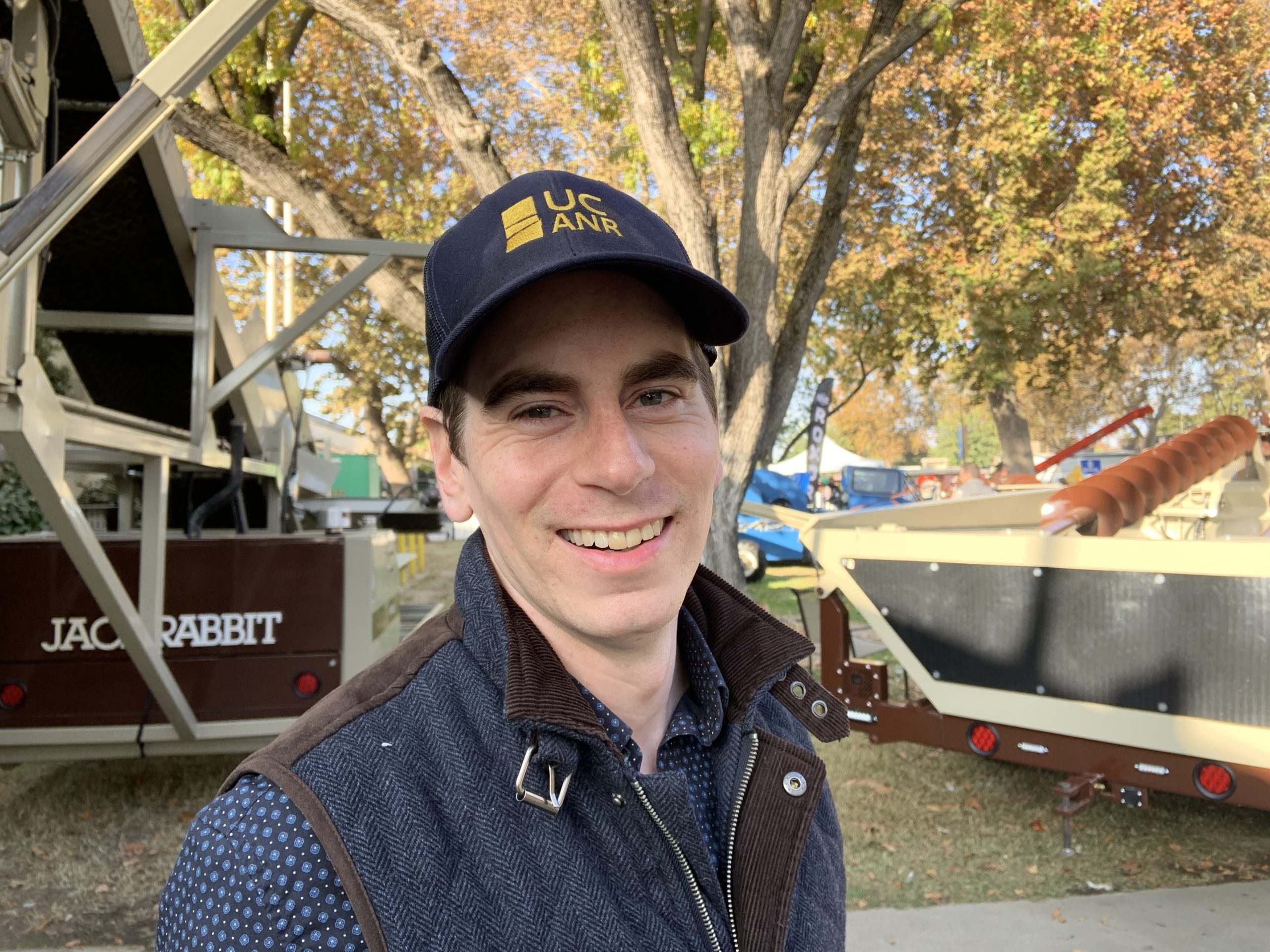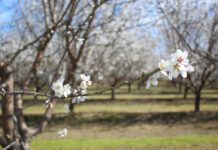When Luke Milliron enrolled in a class about world food and hunger at Butte Community College, he didn’t know it would change his life. It was during this course that he realized that pursuing food and agriculture was the best way he could see himself helping the world.
Then, while as an undergraduate student at California State University, Chico, Milliron studied abroad in New Zealand for a year. While taking classes in agriculture and horticulture, he found that a significant amount of his resources and citations were from the University of California Cooperative Extension (UCCE) and the University of California’s Statewide Integrated Pest Management Program (UC IPM).
“I thought, Well, these folks seem to be the authority. Maybe I should see if I can work for them when I get home. And, that’s exactly what I did,” recalls Milliron. Shortly after he returned from his year abroad, he had the opportunity to work for a local orchard farm advisor.
Though it has been four years since Milliron graduated with his master’s degree and entered the industry, his professional relationship with UCCE extends back into his undergrad days. It has been over these last several years with extension that he has seen a notable change in irrigation, and an increased interest in bark cankers for all tree crops. Some struggles are just as pervasive as when Milliron first got into agriculture, and while some enemies don’t change (e.g.: navel orangeworm), other concerns are becoming larger issues and brought to the forefront.
In addition to water, Milliron notes that the tool kit available to growers in terms of pesticides is going to be important if that very tool kit shrinks. This is true for likely shrinking labor availability as well.
“Our ability to perform under those increasing pressures is going to be make-or-break for some of our industries,” says Milliron.
In the meantime, Milliron encourages growers to invest in being the best irrigation managers they can be, and to do their best to bring precision to their irrigation, and not cause damage to their trees by overwatering them. “It’s the main issue I see when I’m out on a farm call. No matter what the issue is I’m called out to see, over-irrigation tends to be one of the underlying problems,” says Milliron.
When he’s not out on farm calls or conducting research, Milliron is helping growers— and any interested listener— in another way: a podcast. As co-host of Growing the Valley, Milliron shares valuable farm-related information through interviews with colleagues and industry experts.
Over a year and 70 episodes later, Milliron and co-host Phoebe Gordon have laid the groundwork
for a growing podcast audience, and for a second year that gets into the more nuanced concepts of agriculture.
Milliron is pleased to have chosen this path in agriculture, where every day is different, every season is different, and where it’s a pleasure for him to be out in the field working with growers. “In the farm advisor community, we have a saying that you’re not a full-fledged farm advisor for five years. I’m into my third year, and I’m excited to get more seasons under my belt,” says Milliron. He also notes how humbling— and true— it is to be told you don’t know anything until five years in.
“There’s so much to know when you’re a generalist like this, where you’re not in a single niche,” Milliron admits. “You have to know a little about all the pests and diseases, and all the different crops and irrigation and fertilization, and on and on. It’s fun that there’s so much to learn.”
















